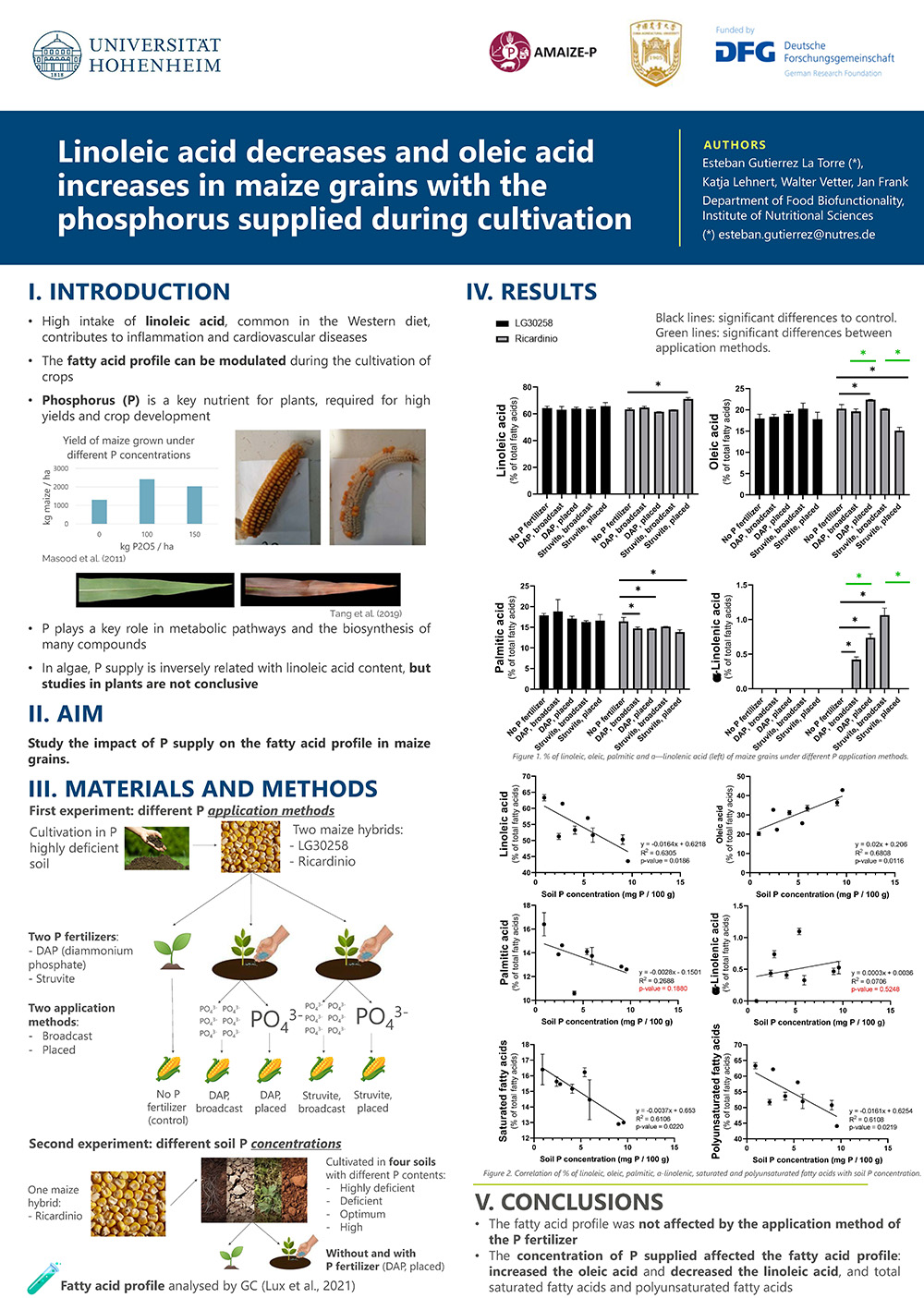Maize is the most consumed cereal worldwide and the main source of fatty acids for most of the world population. Its most abundant fatty acid is linoleic acid. Its excess of intake, currently common in the Western diet, contributes to inflammation and cardiovascular diseases. During the cultivation of plants, the fatty acid profile can be modulated to obtain more nutritious crops. An important input during cultivation is phosphorus, one of the three main nutrients for photosynthetic organisms. It intervenes in many metabolic pathways and plays a key role in the biosynthesis of many compounds. It is reported in algae that the P supplied is inversely related to the linoleic acid concentration. However, the studies in plants are not that conclusive. To investigate this, we cultivated one maize hybrid, Ricardinio, under eight P concentrations, from highly deficient to high, to test the effect of how much P is added on the fatty acid profile of maize. In addition, we studied the impact of P fertilizer (diammonium phosphate vs. struvite) and application method (broadcast vs. placed) in two maize hybrids, LG30258 and Ricardinio, cultivated on highly P-deficient soil, to test the effect of how P is added on the fatty acid profile of maize. The maize plants were cultivated, the maize cobs harvested at maturity, and dried at 40 °C until constant weight. Maize grains were milled and the fatty acids in maize, namely palmitic, stearic, arachidic, oleic, linoleic and α-linolenic acid, were extracted with n-hexane and analyzed by gas chromatography.
The fatty acid profile of the two hybrids was not affected by the type of P fertilizer and the application method. On the other hand, the concentration of P supplied was positively correlated to oleic acid and negatively correlated to linoleic acid. In addition, the saturated fatty acids decreased with the P supplied. As an overall conclusion, an adequate P supply allows to obtain maize with a healthier fatty acid profile: low in linoleic acid, high in oleic acid and low in saturated fatty acids.
